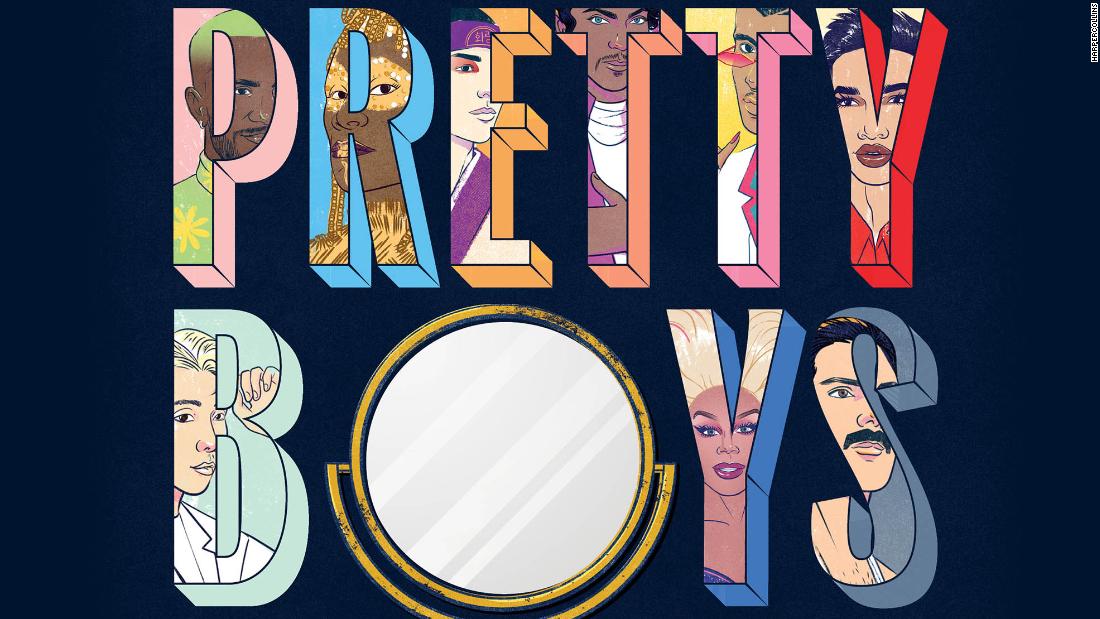‘Pretty Boys’ author David Yi on male beauty and 7 cultural offerings that redefine masculinity
Famed ancient Greek ruler and military mastermind Alexander the Great had a passion for fragrances. France’s King Louis XIV sported glittering heels and made voluminous wigs fashionable. Vikings, often remembered for their rugged masculinity, had extensive hair grooming routines.
Interest in men’s beauty was socially acceptable before it became taboo, and, as David Yi notes in his new book “Pretty Boys,” it is now reemerging after a long hiatus. Modern, Western ideas of masculinity took root in Enlightenment-era Europe and continued across the pond in America, Yi recounts, and interests in cosmetics, fashion and grooming became increasingly aligned with femininity, queerness and immorality — and even criminalized for men in some cases.
Now, the pendulum is swinging back again.

‘Pretty Boys’ author David Yi. Credit: Sarah Yun
“When it comes to men’s beauty, attitudes of masculinity have shifted,” Yi said in an email interview, pointing to stars like Bad Bunny, Harry Styles, Frank Ocean or boy band BTS. “No longer do we subscribe to the idea that men have to be stoic, or hypermasculine to survive in our capitalistic, Western world. Rather, men and their masculinities can be expansive.”
Yi is the founder of gender-inclusive beauty media brand Very Good Light, and “Pretty Boys” is one-half comprehensive history of masculine beauty — including ancient Egyptian ruler Ramses the Great and the “queen of queens” RuPaul — and one-half tips and techniques for how to get their looks.
Looking back at famous men throughout history, Yi said, “Often times, it’s their brute force or physical strength that’s celebrated in history books and not their beauty that is amplified. I’ve questioned why this is and it has everything to do with historians being afraid to tell stories of powerful men and their ‘softer’ sides as if that makes them have any less agency.”
“I wanted to put the facetious term, ‘pretty boy’ on its head and celebrate men who channeled their inner and outer beauties to change the world,” he added. “They prove that truly, pretty is pretty powerful!”
Yi offered the following list of his favorite things to listen to, read and watch to celebrate boy beauty.
Add to queue: Redefining masculinity
This South Korean flick about a Joseon-era king who falls in love with a court jester became a box office sensation and an adapted play. “The themes of love, longing, and homosexuality made this (movie) a conversation starter,” Yi said. “It was the first modern film (in Korea) to discuss masculinity outside the confines of Korean hypermachoism, providing a glimpse into more liberal themes for a very conservative South Korea in the mid-aughts.”
Yi also recommends Troye Sivan’s 2018 single about a same-sex relationship coming to a close. “The slow, synth-pop song normalizes young love while also hitting upon themes of loss and a relationship’s end,” Yi said. “The song went viral in Asia thanks to BTS’s leader, RM, writing how it was one of his favorite songs that year.”
The documentary follows three skater boys in Illinois who bond over skateboarding as they “navigate their painful teenage years,” Yi said. “Each has to confront the masculinity that’s been forced upon them, and the documentary ultimately showcases how young men are conditioned to be a certain way by their environments.”
This essay, by Korean American writer Alexander Chee in his debut anthology, explores “the thrill and euphoria that goes into dressing up in femme attire,” Yi said. “‘Girl’ is about the freedom that comes with a young queer person owning their femininity and the power that comes with it.”
The single — and accompanying music video — “Montero” was an immediate hit for its queer and hell-raising spirit. “Unabashedly gay, Lil Nas X’s devilish and delicious single explores masculinity, manhood, and lots of sex,” Yi said. “The Gen Z artist bares himself in this catchy, addictive mass pop song that’s out, proud, and loud.”
Baldwin penned this essay for a 1985 issue of Playboy, discussing “American manhood, misguided masculinity, and all topics we as a culture are just coming around to in 2021,” Yi explained. “The late writer was and is the blueprint when it comes to delving into modern American masculinity.”
In redefining masculinity, Yi says “Gen Z is already ahead of the curve.” He points to this Netflix dramedy, about a teenager who becomes an accidental (and unliscensed) sex therapist at his high school, as the perfect example. “In (the show), young men explore their sexualities in such a healthy, normalized fashion that’s compelling, real, and inspiring,” Yi said.
For all the latest world News Click Here

